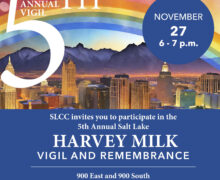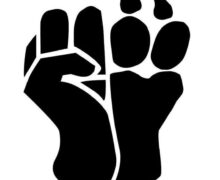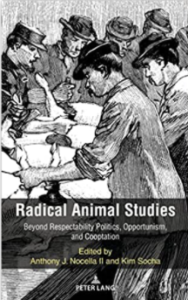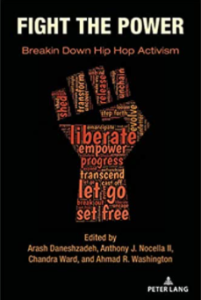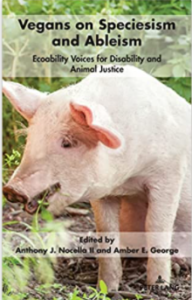“Terrorization of Dissent: Corporate Repression, Legal Corruption, and the Animal Enterprise Terrorism Act” Coming Soon by Lantern Books
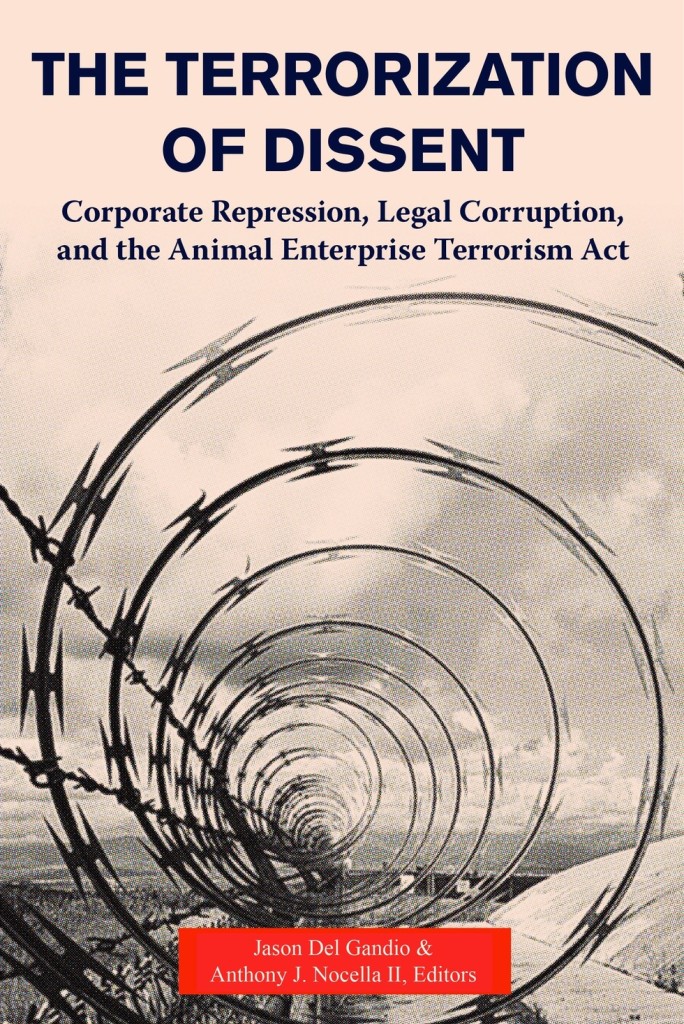 Excerpt from The Terrorization of Dissent: Corporate Repression, Legal Corruption, and the Animal Enterprise Terrorism Act, edited by Jason Del Gandio and Anthony J. Nocella II, coming in June 2014 from Lantern Books.
Excerpt from The Terrorization of Dissent: Corporate Repression, Legal Corruption, and the Animal Enterprise Terrorism Act, edited by Jason Del Gandio and Anthony J. Nocella II, coming in June 2014 from Lantern Books.
The book features writing by Piers Beirne, Sarahjane Blum, Heidi Boghosian, Walter Bond, Joseph Buddenberg, Sarat Colling, Kimberly E. McCoy, Jason Del Gandio, Scott DeMuth, Carol L. Glasser, Jennifer D. Grubbs, Josh Harper, Stephanie Jenkins, Jay Johnson, Eric Jonas, Michael Loadenthal, Dara Lovitz, Lillian M. McCartin, Anthony J. Nocella II, David Naguib Pellow, Will Potter, Dylan Powell, Ryan Shapiro, Wesley Shirley, John Sorenson, Vasile Stanescu, Brad J. Thomson, and Aaron Zellhoefer.
This excerpt is from the Afterword, by Heidi Boghosian.
___________________________________________________________
An informed woman with a conscience, a will of steel, and a picket sign is more threatening to some corporations than is risk of industrial sabotage. Corporations and government allies know that a vibrant people’s movement can engage the public’s conscience in ways that slick advertising campaigns can never do, representing the single most powerful way to expose unethical corporate practices and hope that moral intervention will supplant personal greed. The First Amendment to the U.S. Constitution affords activists a direct artery to the masses through protected activities such as sharing images of human exploitation of animals, tabling outside of puppy mills, engaging in Internet-based organizing, and distributing leaflets. These are the most precious commodities in advancing social justice causes.
Animal rights and animal welfare activists have been highly effective in their advocacy, helping raise awareness among the general public of animal-related issues. For that they have been deemed enemies of the State and labeled “terrorists,” subject to the multifarious abuses attendant with a perpetual war on terror that pours profits into the pockets of corporations and contractors.
How does one continue to advocate for animal rights and welfare given the risk of being charged with terrorism? It’s useful to visualize the desired results—no more LD-50 tests, no more foie gras, no more slaughtering of horses, no more genetic engineering, no more animals in sport or entertainment, to name just a few—and to chart a roadmap to attain such results. Below are a few pointers that may be useful during the process of working toward larger goals.
1. Derive inspiration from history. Every significant social, legal, and political gain, every right and benefit, has been secured by individuals who demanded it. At great personal expense, and often at the hands of violence from state officials, principled individuals have stood up to powerful political and economic forces. Hard-fought victories have been made by ordinary people with extraordinary commitment to challenging power dynamics.
Native Americans occupied the island of Alcatraz from 1969 to 1971 to draw attention to many social problems they faced, from racism to unemployment to lack of educational opportunities. Along with the occupation of Wounded Knee, these protests resulted in Congress passing legislation allowing them more power to govern themselves on reservations. For years, black civil rights and/or liberation activists put their lives on the line at enormous personal sacrifice. The Civil Rights Act and Voting Rights Act represent some of the major legislative accomplishments of that era.
Persistent actions on a nationally coordinated level to oppose the Vietnam War drew attention to peaceful protest and acts of civil disobedience about United States military intervention abroad and led to the end of military conscription. Despite these activists and others being subject to the usual arsenal of government tools to suppress free speech (grand jury abuses, pretextual and mass arrests, spying, infiltration, and disruption), their protests served to inspire many other movements.
Gay rights activists, and later LGBTQ activists, have picketed government agencies in Washington, DC to fight discriminatory employment policies. After the raid on the Stonewall Inn in New York in 1969, a gay rights movement gained power, leading to hard-fought reforms in decriminalizing homosexuality, and reducing police and institutional harassment. Sexual orientation was added to civil rights statutes. ACT UP and other community-based groups educated the public and fought discrimination, cutting through bureaucratic red tape and demanding resources for education and health care programs.
2. Be persistent, and patient. Individual as well as mass victories remind us that challenges to injustice may take years, but we should never concede. An international movement to free five Puerto Rican Nationalist prisoners who fought for Puerto Rican independence—Rafael Cancel Miranda, Irvin Flores, Oscar Collazo, Lolita Lebrón, and Andrés Figueroa Cordero—won a victory in 1979 when the sentences of the four who remained in prison (Andrés Figueroa Cordero was released in 1978 with terminal cancer) were unconditionally commuted and they were released. Approximately 3,000 people greeted the freed patriots in Chicago, 10,000 in New York, and 25,000 jammed the San Juan airport in anticipation of their return.
World-renowned writer Mumia Abu-Jamal was released to general population in 2012 after spending twenty-nine years on death row. And in 2013, Russell Maroon Shoatz was also transferred from over two decades in solitary confinement to a medium security facility. Both had patient, committed defense committees working for decades to draw attention to their cases.
3. Keep sight of the end goals when challenges arise. Social activists have always worked against enormous odds. Modern day coalitions facing similar daunting prospects share a common imperative: putting a human face (or images of animals) to injustices to show how authorities perpetuate disinformation and fear to rein in public movements. It was ordinary individuals in the 1970s who exposed J. Edgar Hoover’s counterintelligence programs that aimed to “neutralize” activist leaders and groups working for positive change. And it’s up to ordinary individuals to expose how corporations and government agencies work to discredit and disrupt individuals and grassroots movements who have been successful in raising awareness of unjust and inhumane policies.
4. Find safety in numbers. Join one of the many animal rights and animal welfare organizations doing work near you or focusing on the specific area of interest to you. Talk to your friends, families, and new people that you meet about projects you’re working on. Share a photo or story of a particular injustice. Use every opportunity to share a short anecdote or fact that might prompt someone else to think about the issue from a new angle, whether on a train ride or in a cab or waiting in line at a movie theater. Learn about national and local advocacy efforts; write a letter and forward it to a friend. Arm yourself with facts, and use creativity, humor, and compassion to speak up on behalf of our nonhuman friends.
5. Know the law and your basic rights. Become familiar with federal and local anti-terrorism laws and consequences. This book’s in-depth examination of the Animal Enterprise Terrorism Act, and the many knowledgeable book’s contributors, are an excellent resource. Identify local legal resources and hotlines that provide assistance to individuals who are targeted for political and free speech activities. Know whom to call if you need legal assistance, and carry that person’s number on your person. Know your basic rights. Avail yourself of the many Know Your Rights information sheets and booklets available on the web. Pay special attention to what you should do if an agent or law enforcement representative visits you at your place of employment or home.
6. Practice safe security. Government intelligence and law enforcement agencies have invested enormous resources—financial, personnel, and public relations—into monitoring individuals, nonprofit organizations, and local associations and groups working on behalf of animal rights and animal welfare issues. Exercise prudence and common sense when planning and communicating about protests or direct actions, and do not share information on the telephone or put in writing anything that you would not feel comfortable making public. Assume that all your communication is being monitored.
7. Know your personal limits, and don’t compromise once you’ve decided on a course of action. Don’t let anyone pressure you into engaging in an action that you do not feel 100 percent comfortable about partaking in. Decide before you participate whether you are willing to risk arrest, and act accordingly. Government agencies, multinational corporations with their own intelligence units, and private security firms use infiltrators and agents provocateurs to encourage, entrap, and provide money and materials for activists to engage in certain actions that they might not otherwise engage in. This is often accomplished by instigating intimate relationships with naïve or trusting social welfare activists. Don’t be swayed into doing something because you want to please or impress someone else.
8. Try not to be intimidated by anti-terrorism legislation and fear mongering in the media. When you know your personal limits and have a basic command of the laws in your jurisdiction, proceed with confidence. Do not be afraid to speak out and to take part in protests or mass mobilizations. The creators of the AETA want you to be afraid. The American Legislative Exchange Council and allied legislators and corporations are banking on the fact that confusion and trepidation about the AETA and equivalent state laws will stifle participation in robust political speech and First Amendment–protected activities. Each time you are confronted with a decision about what to do, about whether to join in a particular action or a growing animal welfare movement, take a moment and listen to your conscience. Picture the millions of monkeys, dogs, cats, rabbits, and other animals subjected daily to scientific experimentation and tortured at the hands of humans. What would you do if you were standing in the laboratory witnessing acts of obscene cruelty?
Some otherwise enlightened individuals may still ask, with all the social problems confronting modern society, what value does animal rights welfare advocacy hold? The answer lies in the manner in which a civilization treats those unable to advocate on his or her own behalf; it is a measure of its morality. Countries such as the United Kingdom have found that animals are sentient beings and not commodities, and they have changed their laws accordingly.
Animals are big business in the United States, so it’s no wonder that the industries want to silence animal rights groups. When Mercy for Animals produced videos of a daily dairy farm operation in New York showing how the tails of cows are cut off without anesthesia (tail docking), or how a staff member hit a cow on the head with a wrench when it would not move, it helped prompt a debate on the need for laws regulating dairy cows.
The power of the animal industry is seen every day. When Oprah Winfrey commented on a mad cow disease outbreak in Europe on national television in 1996, she landed in court fighting the powerful cattle industry. In 1998 cattle producers sued Winfrey under the Texas version of a food libel law, the False Disparagement of Perishable Food Products Act of 1995. Cattle producers claimed that Winfrey and her guests’ remarks caused cattle prices to plummet by $12 million, even though, as Winfrey’s attorney claimed in his opening remarks, one of the cattle producers actually made $140,000 in the aftermath of the show by betting in the cattle futures market that prices would go down. Although the jury found that Winfrey’s comments did not constitute libel, the woman ranked as one of Fortune’s 50 most powerful women in business never again spoke publicly about the issue.
The animal rights and animal welfare movements, and progressive movements generally, face a dual threat of spying and infiltration by the government and by corporate targets of protest. Spying by corporations such as Goldman Sachs or JP Morgan introduces new fears that undermine First Amendment freedoms. Infiltration provides the government and the private sector with an unfair advantage in the face of legitimate and important political grievances. It splinters people’s movements as undercover agents divide members and erode the trust between movement participants. The corporate and government’s response reflected growing animosity toward animal rights activists. In sharp contrast, the creative forms of protest that they engage in help foster a sense of caring that has long been missing in this country.
As the world’s superpower, this nation wields major influence on other countries. By punishing animal rights and animal welfare activism, the United States sends a signal to others that we are willing to violate our own constitution and that we sanction outright cruelty to animals.
Animal rights and animal welfare activists must continue to ignite anger in the hearts and minds of Americans; we must not let them slip into complacency as our government wages flagrant abuses on animals, who are victimized daily by corporate interests and human selfishness. If we allow the Animal Enterprise Terrorism Act to stand unchallenged we are complicit in deliberate horrors. We owe a debt of gratitude to the thousands of individuals who have gone undercover in animal enterprises to expose illegal actions. They serve as a wake-up call for the rest of the country, and indeed, for the world, about the gross inhumanities that animals suffer at the hands of profit-oriented corporations. And we owe a debt of gratitude to the editors and contributors of The Terrorization of Dissent for sharing with others the tactics of a government afraid of the power of its people.
In 2006 the Animal Enterprise Terrorism Act (AETA) was passed with the intention to equip law enforcement agencies with the tools to apprehend, prosecute, and convict individuals who commit “animal enterprise terror.” But, as many have come to realize, this act does not concretely define what is meant by that phrase, leading to the interpretation that anyone interfering with a company’s ability to make a profit from the exploitation of animals can be considered a terrorist.
In this unprecedented and timely collection, some of the most influential voices in the world of law and animal rights examine the legalities of the AETA, highlight its repressive nature and the collusion between private interests and political legislation, and provide theoretical frameworks for understanding a variety of related issues. In a series of interviews, the book also gives animal advocates who have been convicted or directly affected by the AETA, including members of the AETA 4 and SHAC 7, an opportunity to speak for themselves. Ultimately, these writers show that the AETA is less about fighting terrorism and more about safeguarding corporate profit, and that it should be analyzed and resisted by everyone who believes in a better world.
Learn more at lanternbooks.com.



